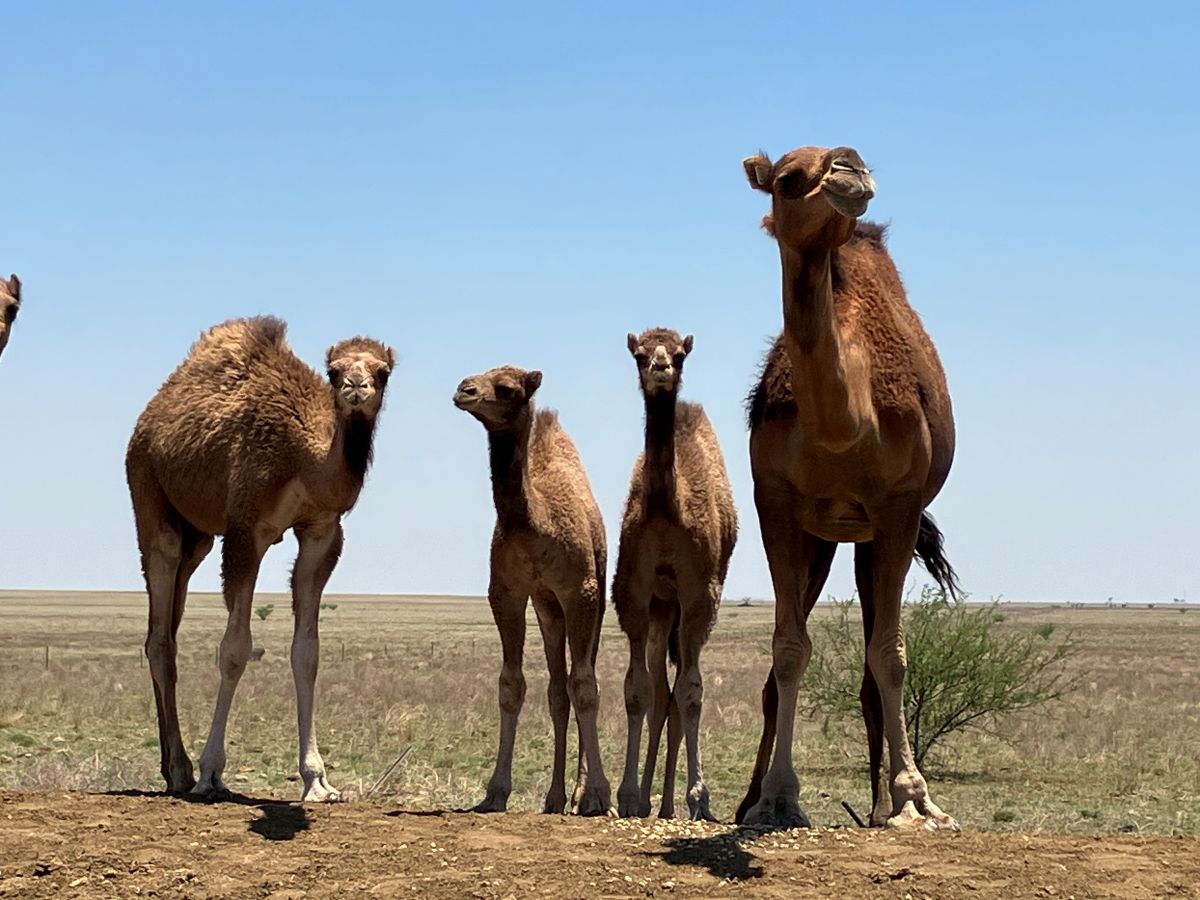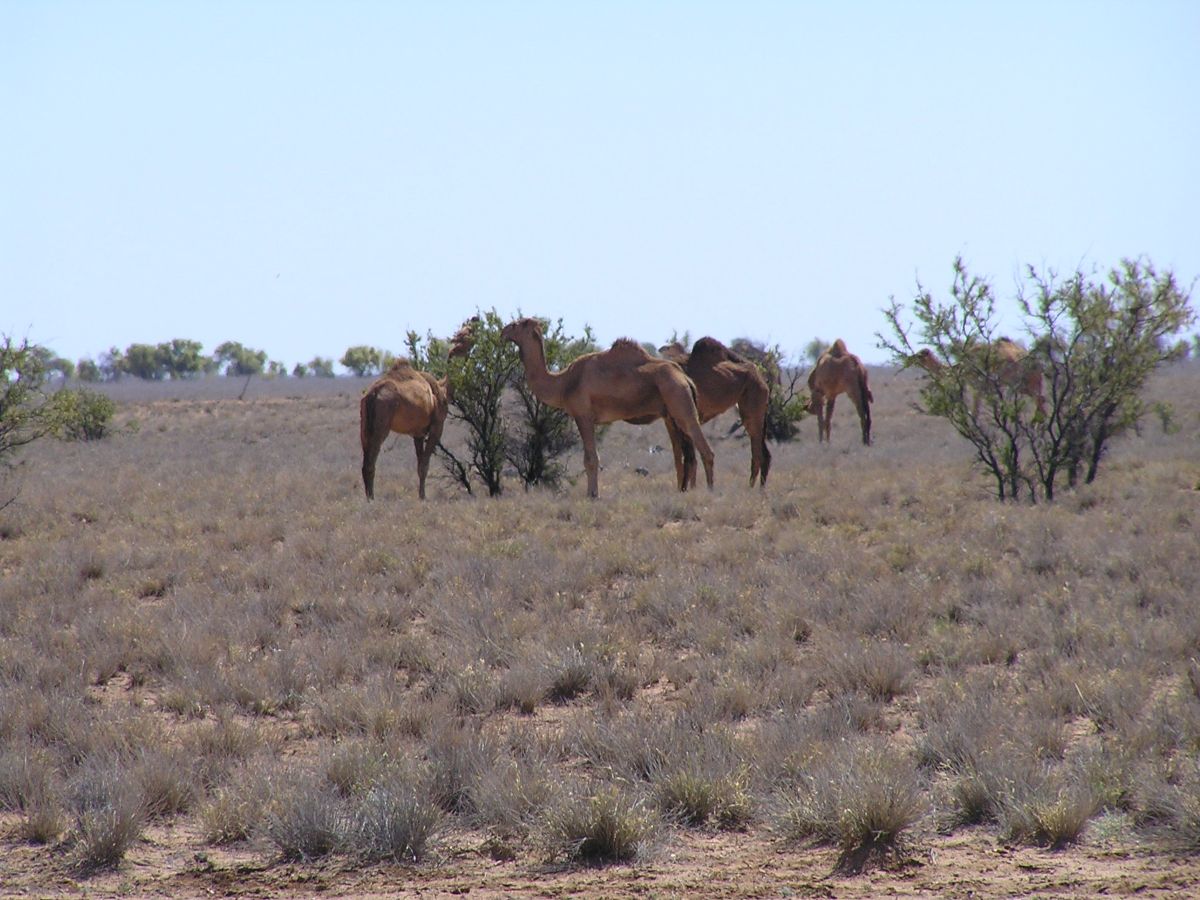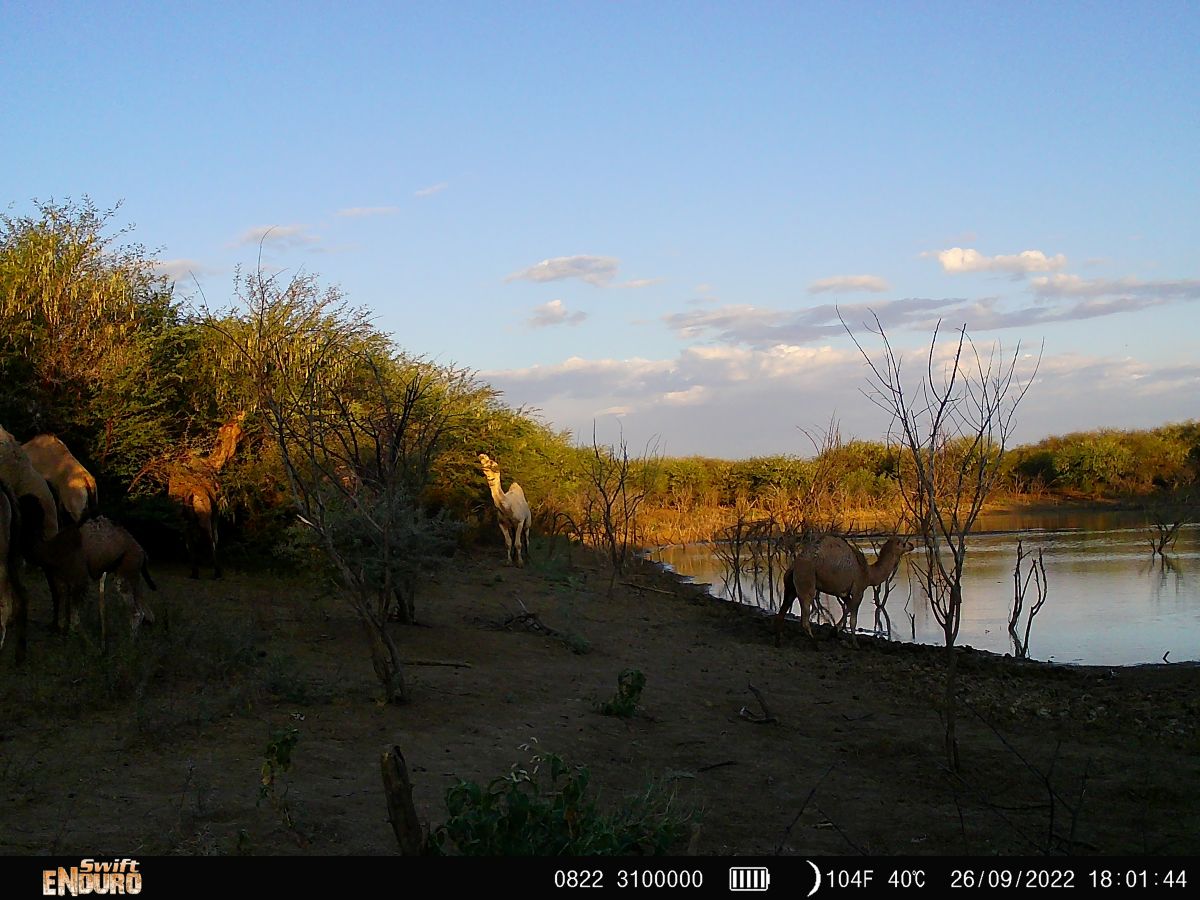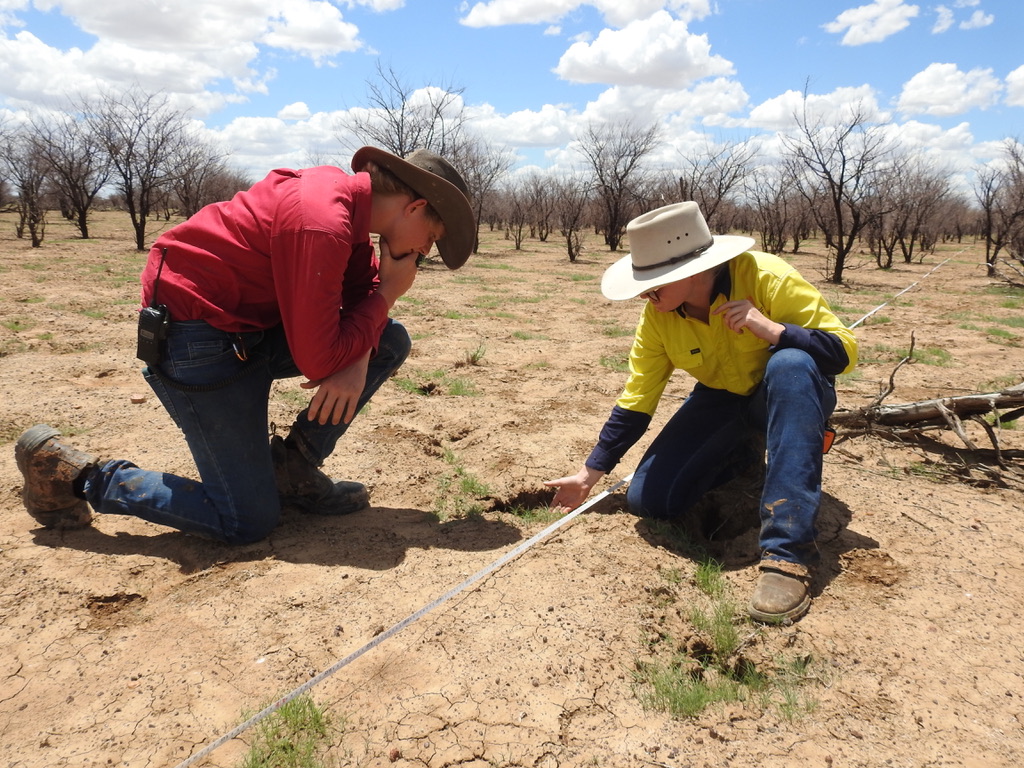Camels ‘chow down’ prickly acacia
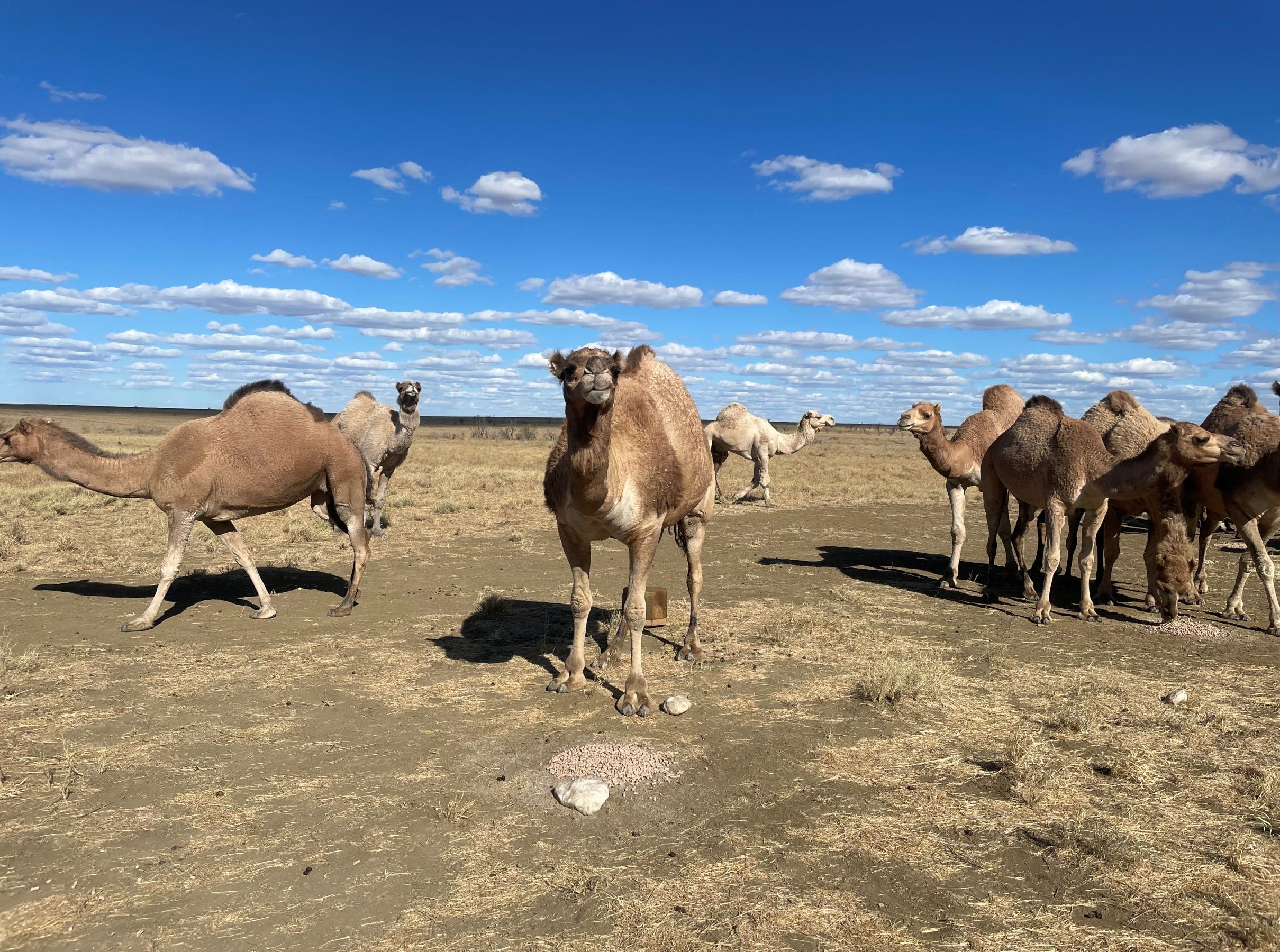
Can camels stop the spread of Prickly Acacia?
The answer is: Yes!
A three-year trial to control prickly acacia near Hughenden has found a small camel herd can be “hugely successful” at controlling the spread of the weed’s seeds.
Prickly acacia is one of Australia’s worst weeds, spreading across 21 million hectares of Outback Queensland since it was introduced in the 1920s.
Camels have shown a preference for prickly acacia flowers and seedpods, and will destroy the seeds they consume to effectively stop the spread of seeds.
It’s great news.
“Camels have joined the prickly acacia toolkit,” said DCQ Operations Manager Geoff Penton said.
“Managing camels can be a challenge, but they’re efficient, they’re cost-effective and they work to stop the spread of prickly acacia seed.”
What the results say
The trial found:
-
Camels, while considered an invasive pest, can be stocked and managed to control Prickly Acacia because they have a preference for the species’ flowers and seedpods.
-
Camels show a low preference for pasture grasses (e.g. Mitchell Grass), which makes up 5% of their diet, meaning they can be stocked alongside cattle.
- The recommended stocking rate for camels is one head per 1,000 prickly acacia stems, based on the diet preferences of camels.
- Camels do not kill prickly acacia trees, but do effectively stop their spread by consuming and destroying seeds.
- Camels prefer prickly acacia densities below 500 stems per hectare with further trials to investigate the impact of higher stocking rates on density.
- Unlike other animals, prickly acacia seeds do not transfer into camel feces.
Desert Channels Queensland began the trial in 2021 in a paddock near Hughenden, which contained more than 23,000 mature prickly acacia trees.
The conclusion
Weed spraying and camel stocking have proven effective at killing dense prickly acacia populations and are another tool for stopping the spread of the invasive weed.
Read the full study here.
